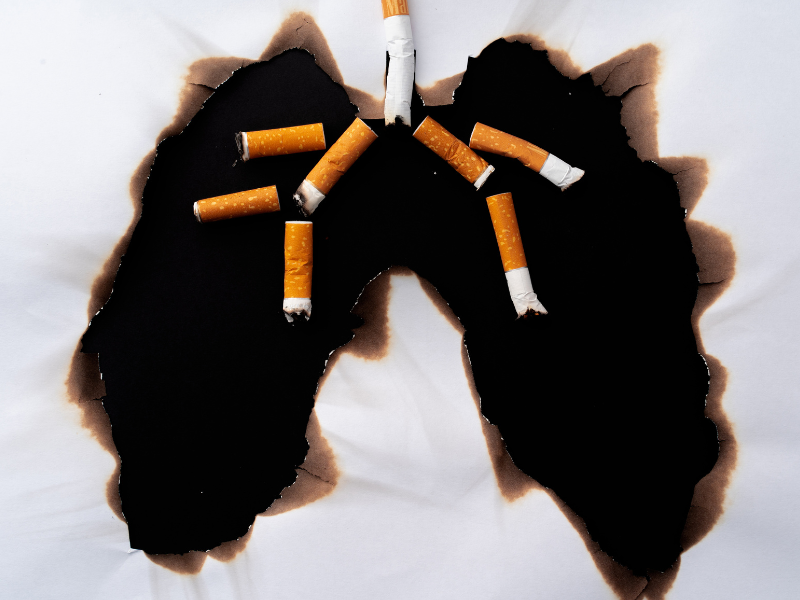Emphysema

Emphysema is a lung illness. Smoking is the leading cause of emphysema, but additional factors include air pollution and chemical fumes. Symptoms include coughing, shortness of breath, and weariness. Your doctor can diagnose emphysema with imaging and respiratory tests. Quitting smoking and using drugs are among the treatment options.
What is emphysema?
Emphysema is a chronic lung disease. It is part of the group of conditions known as Chronic Obstructive Pulmonary Disease (COPD). According to the National Heart, Lung, and Blood Institute, emphysema affects the air sacs in the lungs known as alveoli. This causes the lungs to lose their shape and become floppy. Thus, leading to difficulty in moving oxygen in and carbon dioxide out of the body.
Symptoms of Emphysema
At first, emphysema may not cause any symptoms or only mild symptoms. As the disease progresses, symptoms usually become more severe.
The primary symptom is shortness of breath, which can make it difficult to perform daily activities. Other symptoms of emphysema include:
· Coughing
· Wheezing
· Fatigue
Some people with this condition also experience chest tightness and frequent respiratory infections.
In severe cases, emphysema can cause:
· weakness in the lower muscles
· weight loss
· swelling in the ankles, feet, or legs
In very severe cases, it can lead to respiratory failure, a life-threatening condition in which the body is not receiving enough oxygen.
Causes of Emphysema
Cigarette smoke is the leading cause of this chronic lung disease. Smoking kills lung tissue and irritates the airways. It induces irritation and harms the cilia.
Irritated and damaged cilia lead to:
· mucus production
· enlarged airways
· difficulties clearing your airways
All of these changes may induce shortness of breath.
Though smoking is the leading cause of of this condition, there are also other factors. These include:
· Chemical fumes
· Marijuana
· Vaping and e-cigarettes
· Dust
· Air pollution
Treatment of Emphysema
There is no cure for this chronic lung disease. However, treatments can help manage symptoms, slow the progression of the disease, and improve quality of life.
Treatment options includes:
· Quitting smoking: The primary treatment is quitting smoking. This can help slow the progression of the disease and improve symptoms.
· Medications: This includes bronchodilators and inhaled steroids to help open the airways. It also reduces inflammation in the lungs.
· Oxygen therapy: This can also help improve oxygen levels in the body.
· Antibiotics: Antibiotics help treat bacterial infections such as bronchitis, pneumonia, and other respiratory infections.
· Anti-inflammatory drug. Anti-inflammatory helps to lessen inflammation in your airways.
· Surgery: In severe cases, lung surgery may be necessary. Lung transplantation is an option for some people with severe emphysema, although this is a major surgery that carries significant risks.
Prevention of Emphysema
The best way to prevent emphysema is to avoid smoking and exposure to other lung irritants. If you smoke, quitting smoking is the most effective way to reduce your risk of developing emphysema.
Avoiding secondhand smoke and air pollution can also help reduce your risk. Wearing protective gear, such as masks and respirators, can help protect against chemical fumes and dust in the workplace.
Emphysema is a complex lung disease with multiple causes and treatment options. Early diagnosis and intervention are crucial for managing symptoms and slowing the progression of the disease. By understanding the causes of emphysema and adopting preventive measures, you can reduce your risk and improve your overall health.



